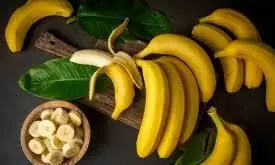
Breakthrough in genetic research offers hope against banana-killing disease
text_fieldsA new genetic breakthrough could potentially save the world's banana supply from a devastating disease known as Fusarium wilt, which threatens to wipe out the popular Cavendish banana variety.
This discovery, detailed in a recent study published in Nature Microbiology, provides a glimmer of hope in averting what researchers have termed a "banana apocalypse."
Cavendish bananas, the variety most commonly found on supermarket shelves, are under severe threat from a virulent strain of Fusarium wilt. This plant-killing disease, which has already decimated other banana varieties, poses a significant risk to global banana production. The last major Fusarium outbreak in the 1950s led to the near extinction of the Gros Michel banana, the predecessor of the Cavendish.
According to the study, researchers discovered that the strain of Fusarium wilt currently attacking Cavendish bananas did not evolve from the strain responsible for the mid-20th century crisis.
This distinction is critical as it opens new avenues for controlling the spread of the disease.
The research team, led by Li-Jun Ma, a professor of biochemistry and molecular biology at the University of Massachusetts Amherst, identified that the modern strain of Fusarium wilt uses specific genes to produce fungal nitric oxide, which is essential in attacking banana plants. While the exact mechanism of how these genes enable the infection of Cavendish bananas remains unclear, the study found that the disease's ability to harm the plants significantly diminished when these genes were removed.
This finding suggests that targeting nitric oxide production could be a key strategy in combating the disease.
However, Ma emphasized that the underlying issue is the lack of diversity in banana cultivation.
The global banana industry heavily relies on the monoculture of Cavendish bananas, making the crop particularly vulnerable to pathogens like Fusarium wilt. "When there's no diversity in a huge commercial crop, it becomes an easy target for pathogens," Ma explained.
To mitigate future risks, Ma encouraged consumers to explore different banana varieties, which may be available at local specialty food stores, and reduce reliance on a single type of banana. This diversification could help protect bananas from future outbreaks and ensure the fruit remains a staple in diets worldwide.























